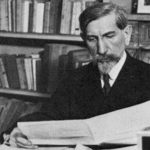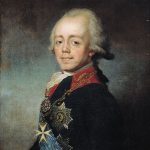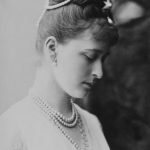Russia is a vast area of land occupying most of eastern Europe and much of northern Asia. So little is known about this country that Winston Churchill said of it in 1939 “I cannot forecast to you the action of Russia: it is a riddle wrapped in a mystery inside an enigma.” But we do know that it has boundaries to the north with the Arctic Ocean; to the west with Norway, Finland, Estonia, Latvia, Belarus, the Ukraine (including the Crimean Peninsula) and the Black Sea. Latvia, Estonia, Belarus and the Ukraine were Soviet Republics when the USSR existed (Finland was Russian in the nineteenth century). Russia has borders to the south with Georgia, Azerbaijan,the Caspian Sea, Kazakhstan, China, Mongolia and North Korea. As might be expected, closeness to all these except the Caspian Sea has meant trouble of one kind or another. To the east there are the seas of Okhotsk and Bering.
Swathes of this enormous country have housed settlements founded by Slavs, Turks and Bulgars in the third to the seventh centuries A.D., but the Byzantine Christian Church was also firmly established by the end of the tenth century. Moscow was the centre of political power during the 14th century and later. The Mongol ‘Golden Horde’ (q.v.) was challenged with varying success from 1380. One century later Ivan III known as ‘the Great’ made himself ‘Sovereign of All Russia’, while Ivan IV known as ‘the Terrible’ doubled the size of the Empire between 1533 and 1584, when death stopped him.
Internal disruptions, problems with Poland, disorder among the feudal nobility put the brakes on upward mobility until Peter the Great became Tsar. But it was under Catherine II the Great that Russia for the first time became less of a mystery and much more of a great power, extending territory into south and east Asia.
Russia chose to do battle with the Japanese in 1904/5 and came off worst, but at least the battles brought Russia’s first constitution and parliament, following a minor revolution. Then the Russian Revolution, far from minor as it changed the world’s aspect, ended the Tsarist monarchy in a hail of bullets and the Union of Soviet Socialist Republics was formed in 1920. There were many republics in this union, but Russia was the dominant partner, covering 75% of the Soviet area, and 50% of the total population.
We all know about Hitler’s non-aggression pact with Stalin (q.v.), which might have caused a Nazi victory in the Second World War had Hitler not broken it and invaded Russia. Hitler was not Bonaparte in any sense, and Bonaparte failed in the same attempt. The Union was broken up in 1991 after the fall of the Berlin Wall (q.v.), and Russia became a still colossal independent republic with a seat on the United Nations Security Council.
Since then and to the present day in the Crimea and the Ukraine, relations with former Soviet republics have deteriorated. There were wars in Chechenya (1994), immense troubles in Georgia, and unrest almost everywhere, but the election of ex-KGB boss Vladimir Putin in the year 2000, following reforms made by Kruschev, Gorbachev, Yeltsin and others have improved the economy and asserted an ever-increasing degree of centralization.
Here is a list of Russian rulers, from 1283:
1283 – 1303 Daniel
1303 – c.1328 Yuri
c.1328 – 1341 Ivan I (‘the Moneybag’
1341 – 1353 Simeon (‘the Proud’)
1553 – 1559 Ivan II (‘the Meek’)
1359 – 1389 Dmitry Donskoi
1389 – 1425 Vasili I
1425 – 1462 Vasili II
1462 – 1505 Ivan III (‘the Great’)
1505 – 1533 Vasili III
1533 – 1584 Ivan IV (‘the Terrible’)
1584 – 1598 Fyodor I
1605/6 ‘The False Dimitri’
1598 – 1605 Boris Gudonov
1605 Fyodor II (‘the Very Brief’)
1605/6 Vasili IV
1613 – 1645 Michael Romanov
1645 – 1676 Alexei Mikhailovitch
1676 – 1682 Fyodor III
1682 – 1696 Ivan V (shared the Tsardom as Co-Tsar with . . .)
1682 – 1725 Peter I, the Great
1725 – 1727 Catherine I
1727 – 1730 Peter II
1730 – 1740 Anna Ivanova
1762 Ivan VI
1741 – 1762 Elizabeth Petrovna
1762 – 1796 Catherine II (‘the Great’)
1796 – 1801 Paul
1801 – 1825 Alexander I
1825 – 1855 Nicholas I
1855 – 1881 Alexander II
1881 – 1894 Alexander III
1894 – 1917 Nicholas II










Leave A Comment